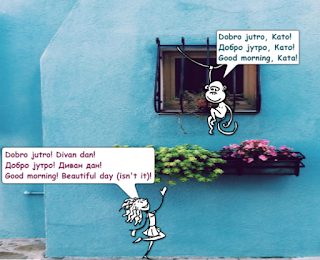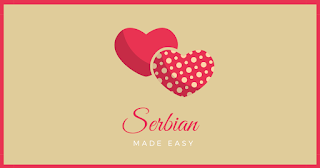Serbian Pronouns in Accusative
The best way to practice this phrase is to play a game and point to the different food items in the kitchen saying:
- Feminine singular: Vidim ribu, vidim je!
- Masculine and Neuter Sg: Vidim hleb / meso, vidim ga!
- Plural, all genders: Vidim jaja, vidim ih!
Useful Vocabulary
- Ananas = pineapple
- Grožđe = grapes
- Dinja = melon
- Višnje = sour cherries
- Trešnje = sweet cherries

.png)





















